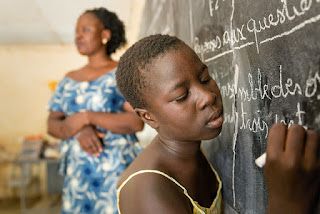Women and religion
Women have contributed significantly to the development of religious customs and practices throughout history. However, because they have experienced exclusion and prejudice due to their gender, women's experiences in religious communities have not always been favorable.
Women have historically been excluded from positions of authority and specific religious rituals because they are viewed as inferior to men in many religious traditions. For instance, women are not permitted to serve as priests or imams in some subsects of Christianity and Islam. Women cannot become rabbis or publicly read from the Torah in Orthodox Judaism. Women are frequently excluded from Hindu rituals and temples.
Notwithstanding these restrictions, women have contributed significantly to the development of religious customs and practices. For instance, in Buddhism, women have played a crucial role in safeguarding and disseminating the Buddha's teachings. The nun Dhammadinna was the first woman to teach the Dharma to both men and women, while the nun Sanghamitta was in charge of founding the order of Buddhist nuns in Sri Lanka.
Since the beginning of Christianity, women have been active members of the church. One of Jesus' closest supporters, Mary Magdalene was the first to see him alive after his death. Women played significant roles in religious instruction and charitable service during the Middle Ages by becoming nuns in large numbers. In many Christian faiths today, women continue to play important roles as pastors, ministers, and leaders of social justice movements.
In the history of Islam, women have also had significant responsibilities. Khadijah, the first wife of the Prophet Muhammad, was a prosperous businesswoman who was essential to the early growth of Islam. Muslim women have been forming a rising movement in recent years to reinterpret traditional Islamic scriptures and rituals in ways that uphold women's equality and rights.
But women still encounter difficulties in religious communities all throughout the world. Several religious groups forbid women from participating in religious rituals while they are menstruating or pregnant because they believe that women's bodies are fundamentally dirty. Moreover, male religious leaders and other worshipers harass and exclude women.
In conclusion, women have contributed significantly to the development of religious traditions and practices, but they have also experienced exclusion and prejudice due to their gender. There is still considerable work to be done to ensure that women are fully included and respected in religious communities all over the world. Women's experiences in religious communities have been molded by a complex interplay of historical, cultural, and social circumstances.



Comments
Post a Comment